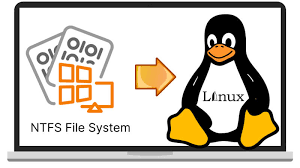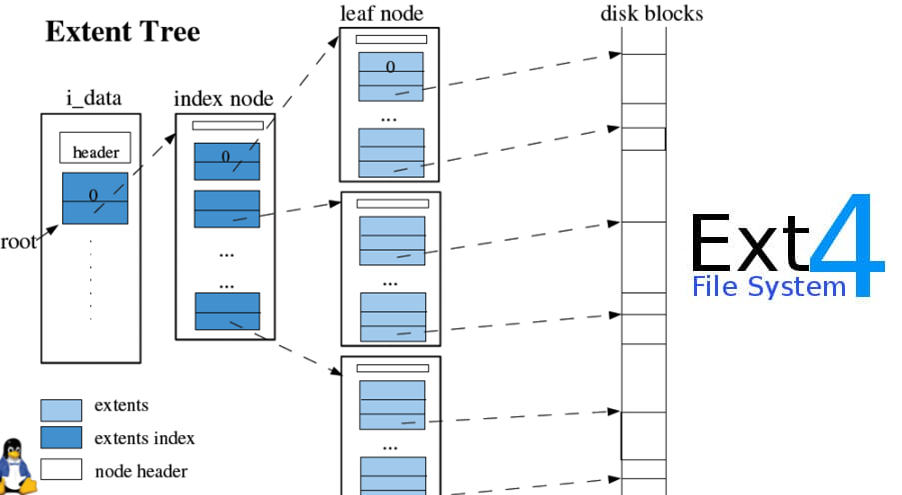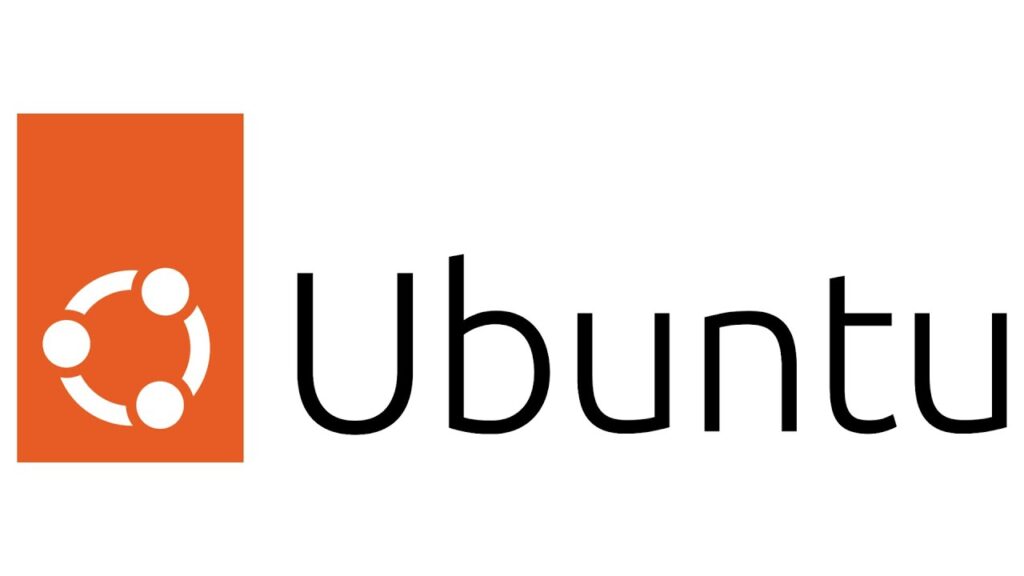When it comes to choosing a file system for your Ubuntu installation, understanding the differences between NTFS and Ext4 is crucial. Both file systems have their strengths and weaknesses, and the best choice depends on your specific needs and use cases. In this article, we’ll delve into the key differences between NTFS and Ext4, helping you make an informed decision for your Ubuntu file system.
What is NTFS?

Overview
NTFS, or New Technology File System, is a proprietary file system developed by Microsoft. It was first introduced in 1993 with Windows NT 3.1 and has since become the default file system for Windows operating systems.
Key Features
- File Compression: NTFS supports file compression, which can save disk space by reducing the size of files.
- Encryption: The Encrypting File System (EFS) feature allows users to encrypt files and folders for added security.
- Permissions and Security: NTFS provides robust file and folder permissions, allowing detailed control over access rights.
- Large File and Volume Support: NTFS can handle large files (up to 16 TB) and supports large volumes (up to 256 TB).
What is Ext4?

Overview
Ext4, or Fourth Extended File System, is a file system used by the Linux operating system, including Ubuntu. It was introduced in 2008 as an improvement over its predecessor, Ext3.
Key Features
- Journalizing: Ext4 includes journaling, which helps protect the integrity of the file system by keeping track of changes in a journal.
- Large File and Volume Support: Ext4 can handle individual file sizes up to 16 TB and volume sizes up to 1 EB (exabyte).
- Backward Compatibility: Ext4 is backward compatible with Ext3 and Ext2, making it easier to upgrade existing systems.
- Extents: Ext4 uses extents instead of traditional block mapping, which improves performance and reduces fragmentation.
Compatibility with Ubuntu

NTFS on Ubuntu
While NTFS is not a native file system for Linux, it is supported in Ubuntu through the NTFS-3G driver. This driver allows Ubuntu users to read and write to NTFS partitions, making it possible to share data between Windows and Ubuntu systems.
Ext4 on Ubuntu
Ext4 is the default file system for Ubuntu and is fully supported out of the box. This native support ensures seamless integration with Ubuntu’s features and tools, making it the preferred choice for most Ubuntu installations.
Performance Comparison
Speed and Efficiency
- NTFS: NTFS performs well on Windows systems but may not be as efficient on Ubuntu due to the overhead of using the NTFS-3G driver. This can result in slower read/write speeds compared to Ext4.
- Ext4: Ext4 is optimized for Linux, providing faster read/write speeds and better overall performance on Ubuntu. Its use of extents and delayed allocation further enhances its efficiency.
Fragmentation
- NTFS: NTFS can suffer from fragmentation, especially with frequent file creation and deletion. Fragmentation can degrade performance over time, requiring periodic defragmentation.
- Ext4: Ext4 is designed to minimize fragmentation. Its extents-based allocation and journaling capabilities help maintain performance, reducing the need for defragmentation.
Data Integrity and Recovery
Journaling
- NTFS: NTFS includes a journaling feature that helps protect the file system from corruption by recording changes before they are committed. This can aid in recovery after unexpected shutdowns or crashes.
- Ext4: Ext4 also supports journaling, offering three modes: writeback, ordered, and journal. These modes provide varying levels of data integrity and performance, allowing users to choose the best option for their needs.
Recovery Tools
- NTFS: There are several tools available for recovering data from NTFS partitions, including proprietary and open-source options. However, these tools are primarily designed for Windows systems.
- Ext4: Ext4 recovery tools are widely available and integrated into many Linux distributions. Tools like
e2fsckanddebugfsoffer robust options for checking and repairing Ext4 file systems.
Use Cases
When to Use NTFS
- Dual-Boot Systems: If you are running a dual-boot setup with Windows and Ubuntu, using NTFS for shared partitions can simplify data sharing between the two operating systems.
- External Drives: NTFS is a good choice for external drives that need to be compatible with both Windows and Ubuntu systems. This ensures that files can be accessed and modified on either platform without compatibility issues.
When to Use Ext4
- Ubuntu Installations: For native Ubuntu installations, Ext4 is the recommended file system. Its performance, reliability, and integration with Ubuntu make it the best choice for most users.
- Data Integrity and Performance: If you prioritize data integrity and performance, Ext4’s advanced features and optimizations provide a robust and efficient file system.
Pros and Cons
NTFS
Pros:
- Excellent support for file compression and encryption.
- Robust permissions and security features.
- Compatible with both Windows and Ubuntu (with NTFS-3G driver).
Cons:
- May have slower performance on Ubuntu compared to Ext4.
- Can suffer from fragmentation, affecting performance over time.
Ext4
Pros:
- Optimized for Linux, offering superior performance on Ubuntu.
- Minimal fragmentation and efficient use of disk space.
- Strong data integrity with multiple journaling options.
Cons:
- Limited compatibility with Windows systems.
- Does not support file compression or encryption natively within the file system.
Conclusion
Choosing between NTFS and Ext4 for your Ubuntu file system depends on your specific needs and use cases. NTFS offers excellent compatibility with Windows, making it ideal for dual-boot systems and external drives. However, Ext4 provides superior performance, reliability, and integration with Ubuntu, making it the preferred choice for native installations.
By understanding the differences between NTFS and Ext4, you can make an informed decision that best suits your requirements, ensuring a smooth and efficient computing experience on your Ubuntu system.




































